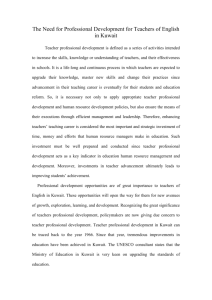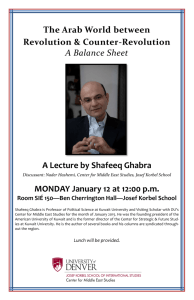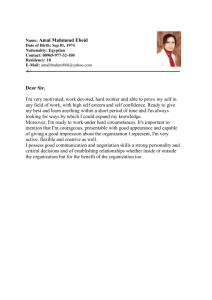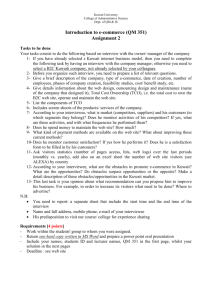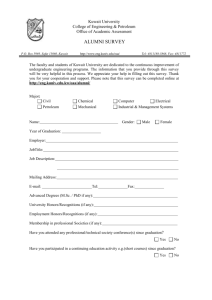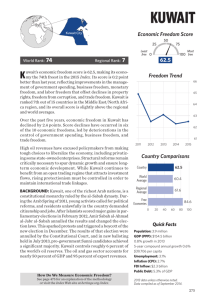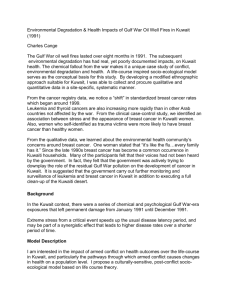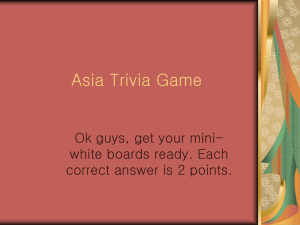Kuwait
advertisement
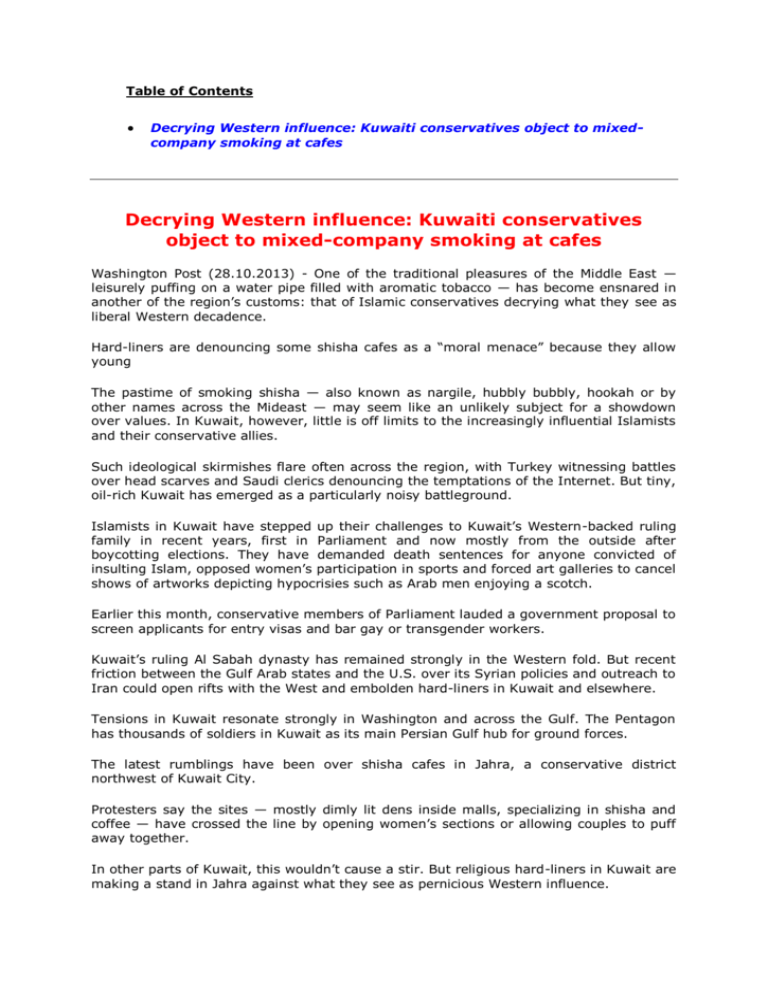
Table of Contents Decrying Western influence: Kuwaiti conservatives object to mixedcompany smoking at cafes Decrying Western influence: Kuwaiti conservatives object to mixed-company smoking at cafes Washington Post (28.10.2013) - One of the traditional pleasures of the Middle East — leisurely puffing on a water pipe filled with aromatic tobacco — has become ensnared in another of the region’s customs: that of Islamic conservatives decrying what they see as liberal Western decadence. Hard-liners are denouncing some shisha cafes as a “moral menace” because they allow young The pastime of smoking shisha — also known as nargile, hubbly bubbly, hookah or by other names across the Mideast — may seem like an unlikely subject for a showdown over values. In Kuwait, however, little is off limits to the increasingly influential Islamists and their conservative allies. Such ideological skirmishes flare often across the region, with Turkey witnessing battles over head scarves and Saudi clerics denouncing the temptations of the Internet. But tiny, oil-rich Kuwait has emerged as a particularly noisy battleground. Islamists in Kuwait have stepped up their challenges to Kuwait’s Western-backed ruling family in recent years, first in Parliament and now mostly from the outside after boycotting elections. They have demanded death sentences for anyone convicted of insulting Islam, opposed women’s participation in sports and forced art galleries to cancel shows of artworks depicting hypocrisies such as Arab men enjoying a scotch. Earlier this month, conservative members of Parliament lauded a government proposal to screen applicants for entry visas and bar gay or transgender workers. Kuwait’s ruling Al Sabah dynasty has remained strongly in the Western fold. But recent friction between the Gulf Arab states and the U.S. over its Syrian policies and outreach to Iran could open rifts with the West and embolden hard-liners in Kuwait and elsewhere. Tensions in Kuwait resonate strongly in Washington and across the Gulf. The Pentagon has thousands of soldiers in Kuwait as its main Persian Gulf hub for ground forces. The latest rumblings have been over shisha cafes in Jahra, a conservative district northwest of Kuwait City. Protesters say the sites — mostly dimly lit dens inside malls, specializing in shisha and coffee — have crossed the line by opening women’s sections or allowing couples to puff away together. In other parts of Kuwait, this wouldn’t cause a stir. But religious hard-liners in Kuwait are making a stand in Jahra against what they see as pernicious Western influence. “Close down the women cafes!” chanted dozens of protesters during a rally earlier this month that included current and former Parliament members from Jahra. “I think they are right to protest this,” said Jahra resident Saad Al-Enezi. “We in Jahra are more conservative than other parts of Kuwait. We don’t accept places where women can mingle with men or sit in the same place and smoke shisha. Girls shouldn’t be doing that, anyway.” Some Parliament members have threatened to demand public questioning of government ministers over the shisha cafes. “How could the owners of these businesses not care about the conservative families who visit these malls? How can they have sections that serve shisha to women openly, when these malls are visited by parents and children?” conservative lawmaker Saud Al-Heraiji was quoted as saying in the pro-government newspaper Al-Anba. “That is very disrespectful to the family values.” Others are bemoaning the expanding reach of Islamic conservatives into how people spend their free time. “It’s a blatant invasion of privacy,” said Shafiq Ghabra, a Kuwait-based political science professor. “People who don’t want to be at mixed coffee shops don’t have to go to them.” Similar fights brew on other fronts, big and small. A group calling itself Thawabit al-Ummah, or Pillars of the Islamic Word, is objecting to Kuwait’s plans to host an international women’s soccer tournament next year, saying the event is more “Westernization” and “an insult to all conservative people and the values they hold dear.” Amnesty International has denounced the proposal to require unspecified medical tests to identify and ban gay or transsexual applicants for labor visas. Kuwaiti officials have backed off the proposal, but it could be raised for discussion at a Nov. 11 meeting of the six-nation Gulf Cooperation Council. Last week, a Kuwaiti children’s center called off a Halloween event after it came under an onslaught of criticism on social media as blasphemous.
